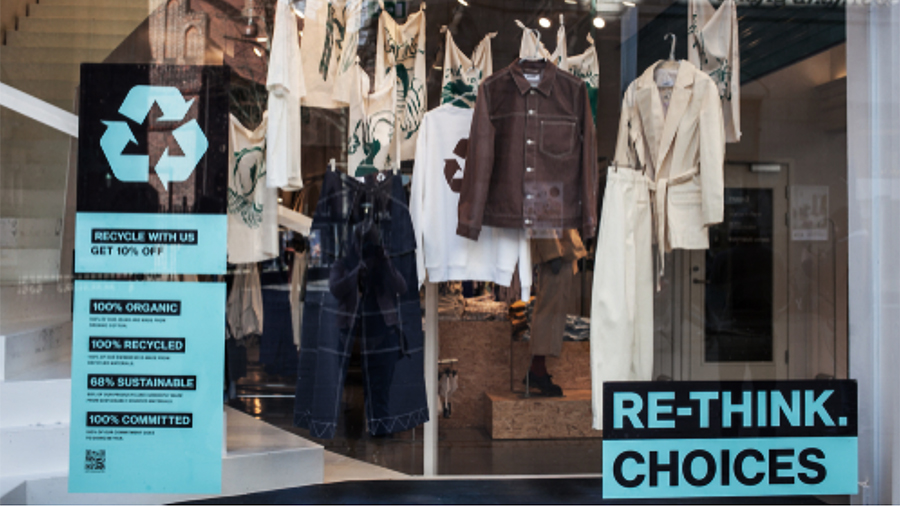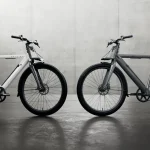A Stifel survey found that most U.S. consumers value sustainability when purchasing active/casual lifestyle brands, though they are reassessing spending priorities as inflation soars.
While 81 percent of consumers in the U.S. believe it’s important for companies to act sustainably, less than two-thirds (64 percent) will pay more for brands with leading sustainability practices, down slightly from 67 percent last year.
With inflation reaching a 40-year high, consumers in the States are prioritizing good value (69 percent versus 67 percent in 2021), low price (52 percent versus 45 percent in 2021), and reputation for durability (51 percent flat versus a year ago) when purchasing active/casual lifestyle brands.
Consumers who prioritize sustainability remained consistent versus 2021 (31 percent flat versus a year ago), while other considerations had lower priorities in 2022, including style (38 percent versus 43 percent a year ago), innovation (20 percent versus 23 percent a year ago), uniqueness (19 percent versus 21 percent a year ago), and trendiness (18 percent versus 20 percent a year ago). Sixty-three percent of consumers regularly consider pre-owned, secondhand or refurbished when purchasing active/casual lifestyle brands.
“Sustainability plays heavily into purchasing behaviors for an overwhelming majority of U.S. consumers, especially for younger, Gen Z shoppers,” said Jim Duffy, managing director and lead analyst in the active lifestyle space at Stifel. “With inflation, however, we are being asked to pay more for everything, and this is testing resolve for consumer willingness to pay a premium for brand attributes including leading sustainability practices.”
Working with Morning Consult, Stifel surveyed 4,679 U.S. active/causal lifestyle brand consumers ages 18-to-55. Other key findings include:
- More than half (56 percent) of consumers look for information about a brand’s sustainability practice before purchasing;
- 71 percent consider sustainability when choosing a brand, and 58 percent have purchased a new product precisely because of sustainability reasons;
- Leading sustainability priorities that consumers consider “very important” include giving workers fair pay and benefits (58 percent), supporting racial equality (43 percent) and protecting local environments and ecosystems (39 percent);
- Inflation influences consumers’ brand perception and gives them a more cynical view. Relative to last year, more consumers indicated a belief that brands are profit-focused (41 percent versus 38 percent in 2021), but fewer said that brands are increasing their focus on social issues and positive community influence (44 percent versus 57 percent in 2021).
The survey also questioned 5,325 active/causal lifestyle brand consumers ages 18-to-55 living in the UK, Germany, France, Italy, and China. At least four of five category purchasers said that brands must operate sustainably. Specific global findings include:
- International consumers place greater priority on sustainability—-59 percent of French nationals and 42 percent of Italian nationals named sustainability a Top 3 purchasing priority versus 31 percent of Americans who feel the same;
- More than half of respondents in China (61 percent), France (56 percent), Germany (53 percent), and Italy (53 percent) have boycotted or stopped buying a brand or product because of sustainability concerns. Only 45 percent of Britain and 41 percent of American consumers acted similarly; and
- Chinese consumers have placed an importance on sustainability and are more likely to call for brands to achieve carbon neutrality, prioritize recycling and protect human rights in the global supply chain than last year.
In conjunction with the survey, Stifel updated its “Stifel Sustainable Lifestyle Brands Index,” which ranks brands based on U.S. active/casual lifestyle consumer perception of brand sustainability practices. Brands were measured according to three metrics of sustainability: Environmental, Social and Ethical business practices.
For the second year in a row, Bombas was #1, Patagonia #2 and The North Face was #3. The top five include YETI at #4 and Hydro Flask, #5, and on the leaderboard for the first time. The remaining Top 10 are Columbia, Duluth Trading, Birkenstock, Under Armor, and Smartwool.
Full survey results can be found here.
Photo courtesy Just Style
















